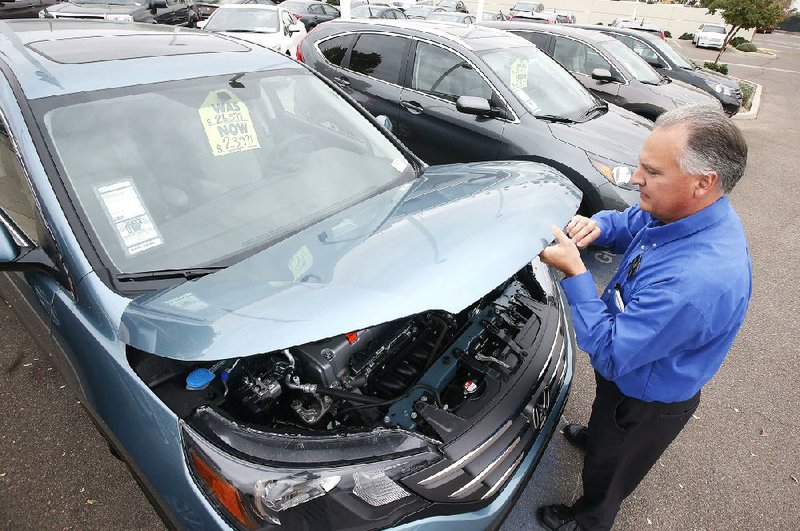WASHINGTON -- Orders for long-lasting manufactured goods dropped sharply in December, as U.S. businesses trimmed spending amid escalating worries about the global economy.
Orders for durable goods fell 3.4 percent in December, the Commerce Department reported Tuesday. It was the biggest retreat in four months and came after a 2.1 percent decline in November, which represented a major downward revision from the previous estimate of a 0.9 percent drop.
The data suggest that U.S. companies may be growing wary of a number of potential risks: economic weakness in Europe and Asia, a rising dollar that hurts American exports and tumbling energy prices that have cut demand for oil drilling equipment.
The December result was led by a 55.5 percent plunge in the volatile category of commercial aircraft. But the weakness was broad-based, raising questions about the U.S. economy's ability to keep growing at a robust pace.
Demand for machinery, computers and primary metals all fell. A key category that serves as a proxy for business investment plans edged down 0.6 percent in December after a similar decline in November and a 1.8 percent fall in October.
The decline surprised economists, who had been forecasting a small increase for December. The worse-than-expected report could mean that overall economic growth in the October-December quarter will turn out weaker than anticipated. Economists at Barclays trimmed their estimate for overall economic growth in the fourth quarter to a 3.2 percent rate, down from 3.3 percent, based on the lackluster durable-goods report.
Economists, however, said they expected the weakness in business investment for oil exploration to be more than offset by stronger consumer spending, reflecting the break motorists are getting in plunging gas prices.
"The world economic situation is sharply divided between an improving domestic economy and pronounced weakness in key regions outside of the U.S, most notably the eurozone and China," said Cliff Waldman, director of economic studies for the MAPI Foundation, the research arm of the Manufacturers Alliance for Productivity and Innovation.
The consecutive declines in durable goods left orders for December at $230.5 billion.
The recent setbacks in manufacturing contrast with earlier months when U.S. factories were enjoying large gains in orders and production. Analysts believe that the recent retreat in orders will rebound this year, though they are watching closely to monitor the effect of the stronger dollar on exports.
In a separate report, the Conference Board reported Tuesday that its consumer confidence index climbed to 102.9 this month to the highest level since August 2007 -- four months before the start of the recession. January's figure was up from a revised 93.1 in December.
"Consumers started the year in a buoyant mood," Andrew Hunter, an analyst at Capital Economics, wrote in a research note.
Americans haven't felt this good about current economic conditions since January 2008; 28.1 percent of consumers described current economic conditions as good, the highest share since July 2007. And they are the most optimistic they've been since February 2011 about business conditions over the next six months.
Consumer confidence has been rising as the economy improves. Employers added nearly 3 million jobs last year, the most since 1999. The unemployment rate last month tumbled to a 6-year low of 5.6 percent.
"A more positive assessment of current business and labor-market conditions contributed to the improvement in consumers' view of the present situation," Lynn Franco, director of economic indicators at the Conference Board, said in a statement.
The economy grew from July through September at a 5 percent annual rate, its fastest in 11 years.
Adding to improving spirits: Gas prices plunged to a national average price of $2.04 a gallon Tuesday from $2.32 a gallon a month ago, according to AAA.
Bricklin Dwyer, an economist at BNP Paribas, wrote in a research note that the stronger consumer confidence numbers "support our forecast for continued strength in consumer spending."
Absent from the economic success story so far are significant wage gains: Adjusted for inflation, hourly earnings for private-sector employees were the same last month as they'd been in December 2008.
Information for this article was contributed by Martin Crutsinger and Paul Wiseman of The Associated Press and Nina Glinski of Bloomberg News.
Business on 01/28/2015
